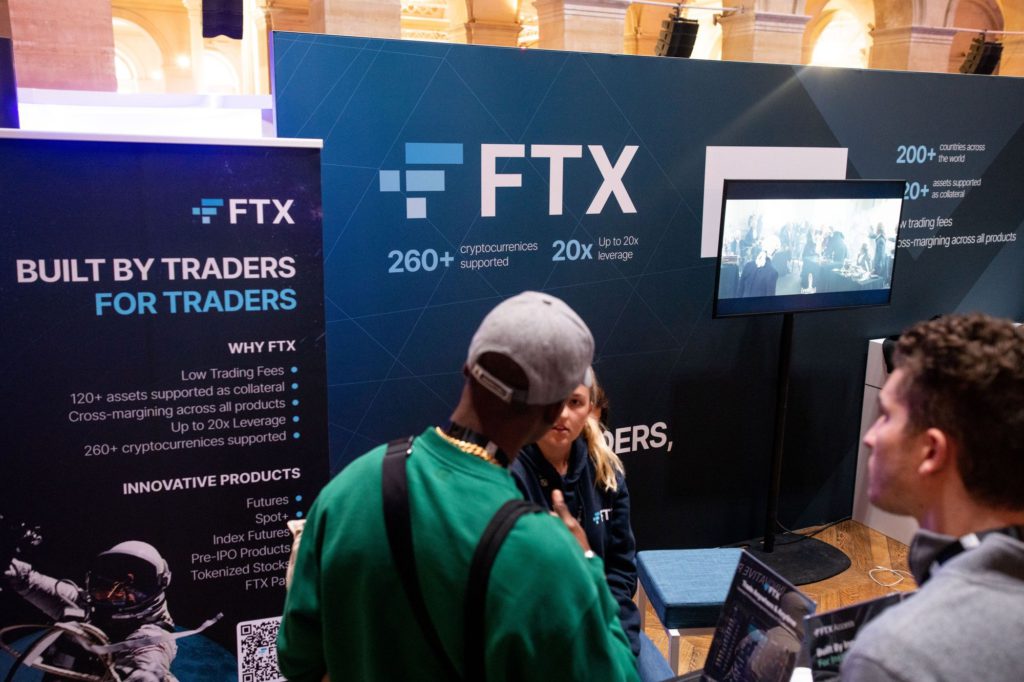(Bloomberg) — Wall Street exchanges and other firms zeroed in on their objection to a proposal US regulators are considering that would allow retail investors to trade crypto derivatives directly on a popular digital asset platform.
The plan — from crypto firm FTX — would take banks and other financial intermediaries out of Bitcoin and Ether futures trades that use margin. At a roundtable on Wednesday hosted by the Commodity Futures Trading Commission, which is reviewing the proposal, executives from firms including CME Group Inc. and Intercontinental Exchange Inc. said the change could add risks to the market.
“We view the original model that exists today — with all of the resources that are available — as quite adaptive and it has performed in many different circumstances,” said Sean Downey, managing director, clearing chief compliance officer and head of policy at CME. For instance, the market performed well following volatility stemming from the 2016 US presidential election, he said.
FTX’s CEO Sam Bankman-Fried, who swapped his infamous t-shirt and shorts for a suit, defended his proposal, saying it reduces risk because the firm’s model would use algorithms to monitor trades seven days a week. The crypto billionaire has said his approach would increase competition and opportunities for mom-and-pop investors.
The fight over FTX’s plan is a contentious one, pitting Wall Street’s old guard against its new. If it’s approved, the changes could lead to a significant shift in the way exchanges currently do business. Many in traditional finance fear the model could be applied to other assets, threatening Wall Street’s stranglehold over lucrative aspects of market structure. The CFTC will likely take months to reach a final decision.
“We are talking about new plumbing,” said Thomas Wipf, vice chairman of institutional securities at Morgan Stanley. “How does that work out? How do the storm drains work?”
The discussion on Wednesday was heated at times, with FTX at odds with progressive analysts as well as financial firms.
Todd Phillips, director of financial regulation at the Center for American Progress, a progressive think tank, said retail investors need an intermediary when they enter into derivative contracts, because “it’s difficult for folks who are trading really volatile assets like crypto to compete directly against professionals.”
“I just don’t think that margined crypto is something that we really want our retail investors to be getting into,” Phillips said.
‘Some Irony’
In response, Bankman-Fried pushed back against the idea that retail traders have less experience or knowledge.
“There is some irony in some of the statements made by people attempting to protect those who know massively more than they do about the topic,” the crypto executive said. “I had to get that off my chest.”
One particularly contentious part of the plan is a tweak that would allow FTX to begin automatically liquidating investors’ positions in some instances. FTX’s algorithms would monitor customers’ trades and assets — essentially in real time — to determine whether an investment has lost value. If there aren’t enough funds in an account to cover an investor’s position, the auto-liquidation feature kicks in.
Some raised the prospect of a compromise. The proposal is “not a zero sum decision,” said Andrew Smith of Virtu Financial Inc.
It’s possible that both models could co-exist, according to Jennifer Han, chief counsel and head of regulatory affairs at the Managed Funds Association, whose members include hedge funds. There’s “a lot of support for continued innovation and competition in this area.”
(Updates with FTX, Center for American Progress comments starting in seventh paragraph.)
More stories like this are available on bloomberg.com
©2022 Bloomberg L.P.











